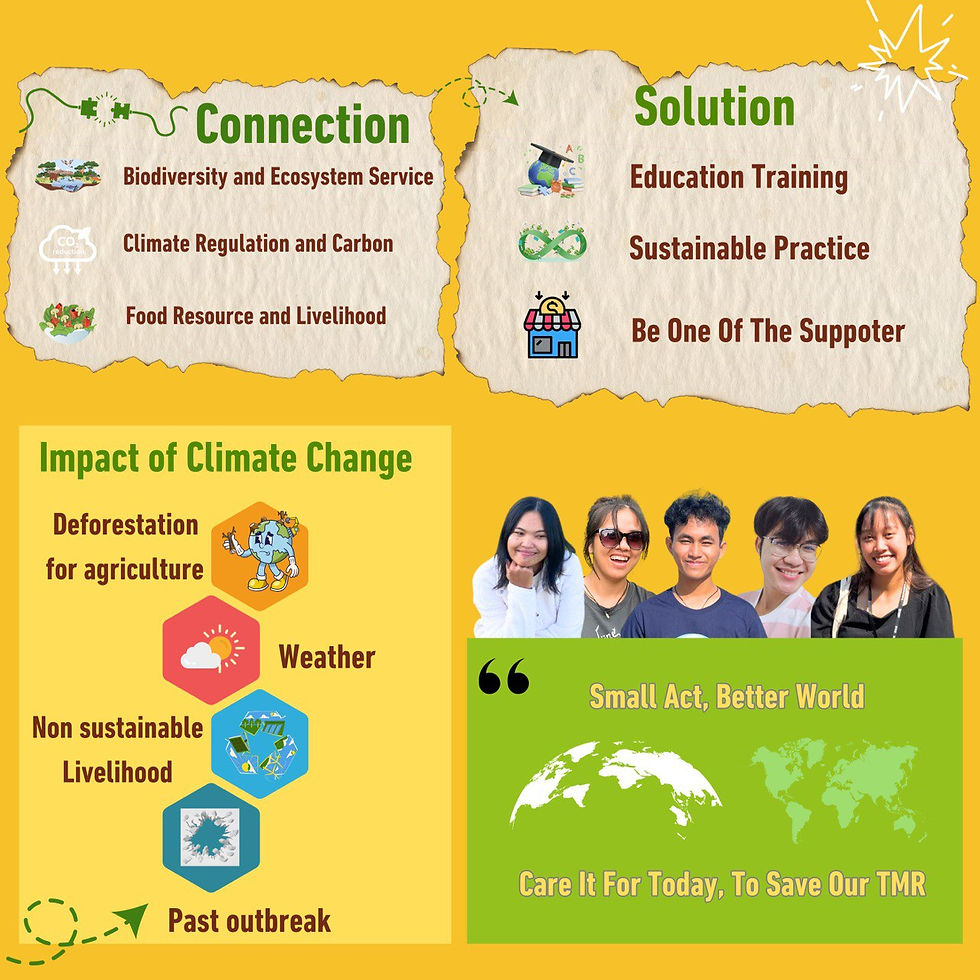Bridging Borders: Youth-Led Environmental Solutions for a Resilient Future - Part 2
- yep-academy

- Nov 18, 2024
- 2 min read
Part 2: Sustainable Solutions for Clean Water, Agriculture, and Land Rights
In Part 1, we explored how Groups 3 and 5 are harnessing the power of biodiversity and water ecosystems to inspire resilience and sustainability. Now, in Part 2, we delve into the impactful projects of Groups 1, 2, and 4, who focused on critical issues related to clean water access, sustainable agriculture, and land rights. Each group offers innovative, community-centered solutions that empower local populations, advocate for environmental justice, and champion sustainable practices.
Discover how these young leaders are paving the way for a greener, more equitable future.
Group 1: Clean Water and Sanitation for Floating Communities

Group 1 dedicated their efforts to SDG Goal 6: Clean Water and Sanitation by addressing water access challenges in Cambodia’s Prek Toal Floating Village. Their project identified barriers to clean water access and sanitation caused by seasonal flooding and pollution, proposing a floating water treatment system to provide a reliable and affordable water source. Their plan also includes community-led management, where locals contribute to the system’s maintenance costs, encouraging ownership and long-term sustainability. Through these efforts, Group 1 envisions a healthier, more secure environment for Prek Toal residents.
Group 2: Sustainable Agriculture and Forest Conservation

Group 2 explored the symbiotic relationship between forests and agriculture, emphasizing how sustainable practices can protect biodiversity while ensuring food security. Their solutions include training programs on organic farming, seed banking, and the promotion of minimalistic lifestyles to reduce environmental impact.


By empowering communities to support conservation efforts and sustainable agriculture, Group 2’s approach aims to balance the needs of people and nature, creating a pathway to ecological resilience and food security in both urban and rural settings.
Group 4: Water Management and Land Rights
Group 4 focused on the interconnected issues of water management and land rights, particularly the effects of pollution, flooding, and lack of land tenure on vulnerable communities. Through case studies in Phnom Penh, Baray, and Tonle Sap Lake, they explored the impact of urbanization, dam construction, and lack of civic engagement on water security and ecosystem health. Their findings emphasize that land rights are fundamental human rights and advocate for policies that prioritize sustainable resource management, community protection, and environmental justice.
Youth as Catalysts for Change
Together, these five groups illustrate the transformative power of youth-led solutions in combating climate change. Their work reflects a shared commitment to sustainable practices, environmental justice, and community empowerment, with each group taking steps to address climate issues that resonate deeply within their communities.











Comments